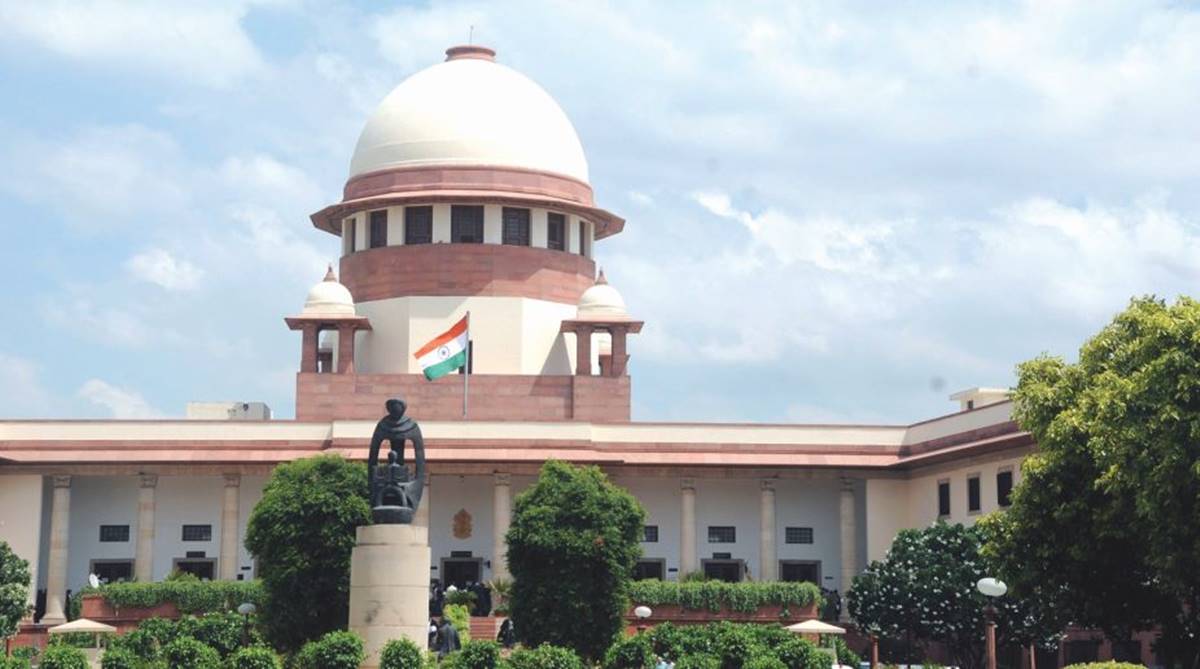SC permits MTP of 29-week pregnancy of minor rape survivor
The top court also set aside the Bombay High Court order declining the plea for the medical termination of her pregnancy.
The Allahabad High Court had in 2010 trifurcated the disputed site, giving one portion each to Ram Lalla, Nirmohi Akhara and the original Muslim litigant.

Supreme Court of India (Photo: IANS/File)
The Supreme Court on Friday set the date for hearing on the title suit in the Ayodhya case for 10 January.
A bench of Chief Justice Ranjan Gogoi and Justice Sanjay Krishan Kaul said that an appropriate bench will hear a batch of cross petitions challenging the 2010 Allahabad High Court judgment on the Ram Janmabhoomi-Babri Masjid land dispute title case and will decide the future course of the hearing.
The Allahabad High Court had in 2010 trifurcated the disputed site, giving one portion each to Ram Lalla, Nirmohi Akhara and the original Muslim litigant.
Advertisement
“Further orders will be passed by an appropriate bench on 10 January for fixing the date of hearing the matter,” the bench said on Friday.
The apex court also dismissed a PIL filed by an advocate Harinath Ram in November 2018 seeking to hear the Ayodhya matter on urgent and day to day basis.
Reacting to the development National Conference leader Farooq Abdullah said that the case should not have gone to the court and that Lord Ram belongs to the world.
“This(Ayodhya) issue should be discussed and sorted out across the table between people. Why to drag the issue to the Court? I am sure it can be resolved through dialogue. Lord Ram belongs to the whole world, not just Hindus,” he was quoted as saying by ANI.
The top court had on October 29 fixed the Ram Janmabhoomi-Babri Masjid land dispute cases for the first week of January next year before an appropriate bench.
On 12 November, the apex court had declined early hearing of petitions in the Ram Janmabhoomi-Babri Masjid title dispute case.
“We have already passed the order. The appeals are coming up in January. Permission declined,” the bench said while rejecting the request of early hearing of lawyer Barun Kumar Sinha, appearing for the Akhil Bharat Hindu Mahasabha.
The Supreme Court in a 2:1 verdict in October, declined to refer to a five-judge Constitution bench the issue of reconsideration of the observations in its 1994 judgement that a mosque was not integral to Islam that arose during the hearing of Ayodhya land dispute.
Clamour for a legislation to pave the way for the construction of the temple has since gained prominence.
But in an interview with ANI on 1 January 2019, Prime Minister Narendra Modi ruled out bringing an ordinance on the construction of Ram temple in Ayodhya before the judicial process is over.
Read More: PM Modi rules out ordinance on Ram temple at Ayodhya
“We have said in our party manifesto that a solution would be found to this issue under the ambit of the Constitution,” the Prime Minister said about the Ram temple issue in his interview to ANI.
He also suggested that the judicial process was being slowed down because of obstacles being created by the Congress in the Supreme Court – a charge he had levelled during one of the rallies in Rajasthan ahead of the elections in the state.
(With inputs from agencies.)
Advertisement